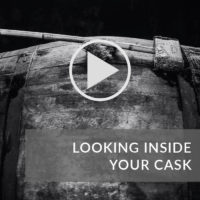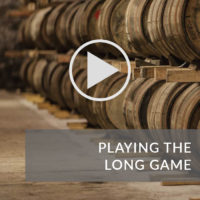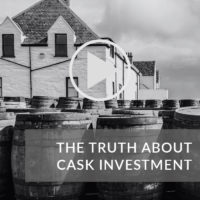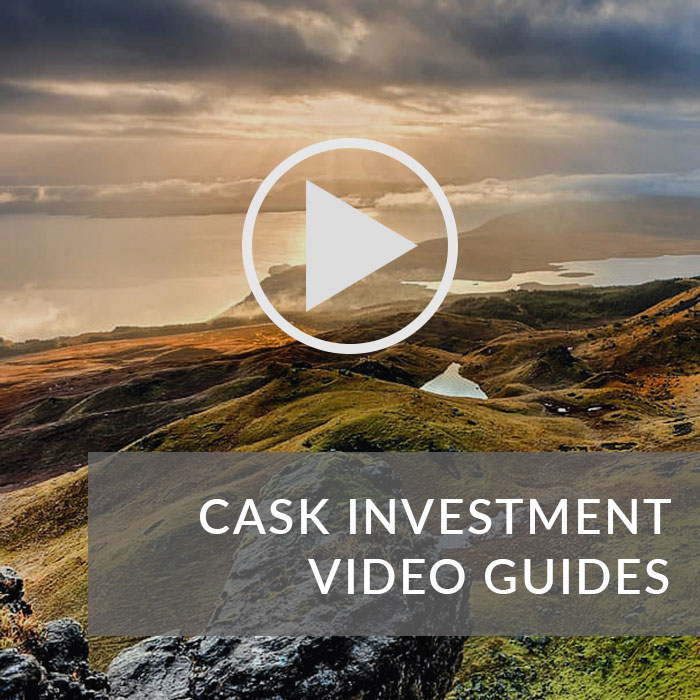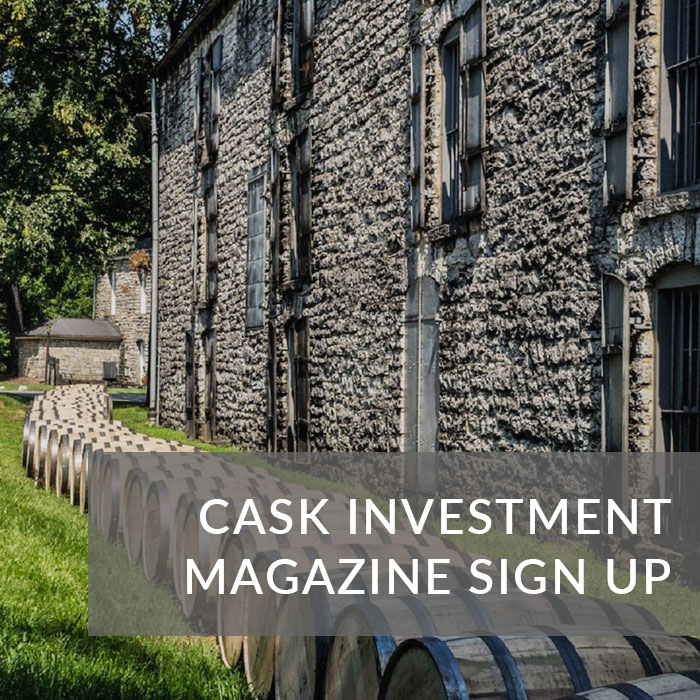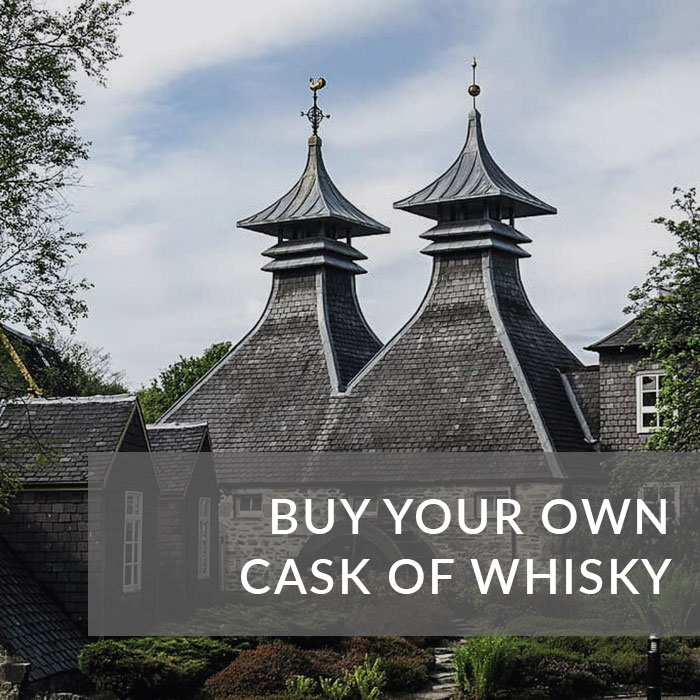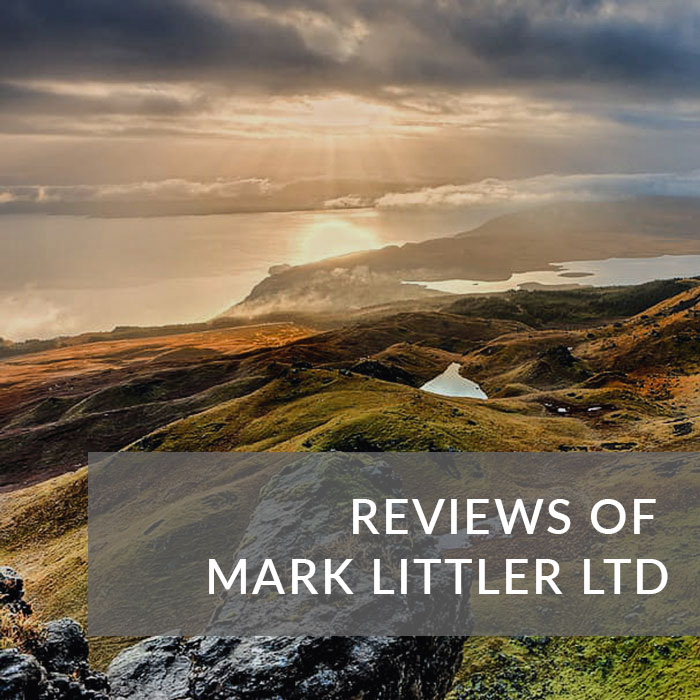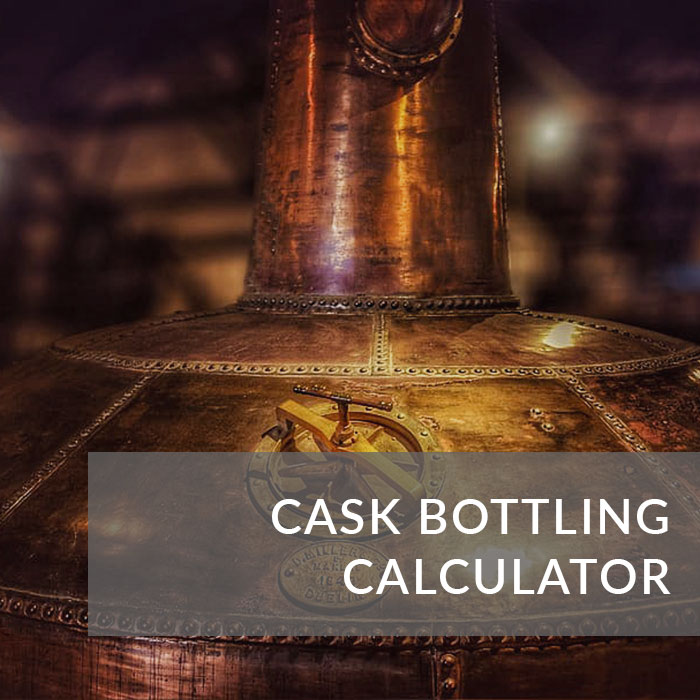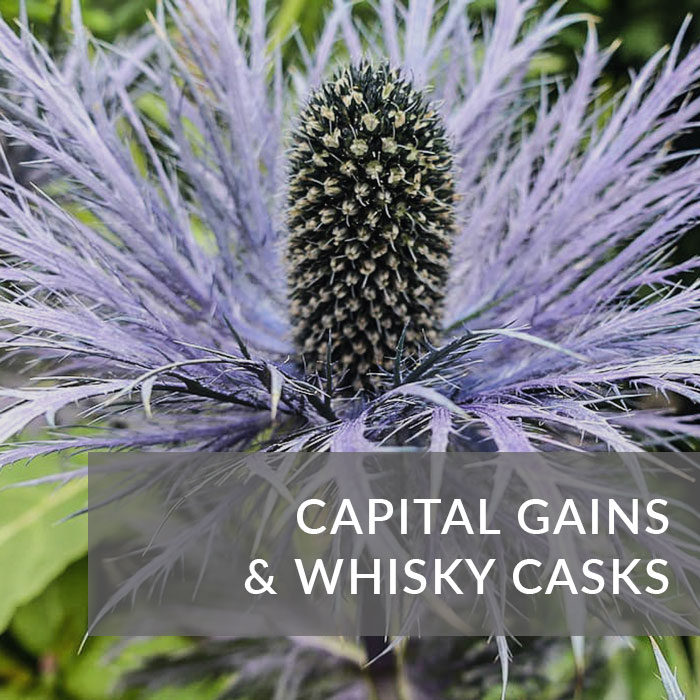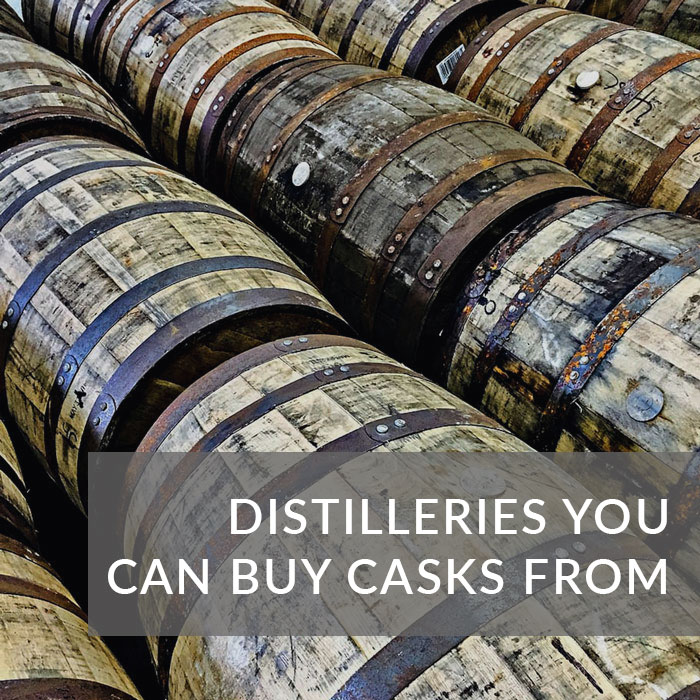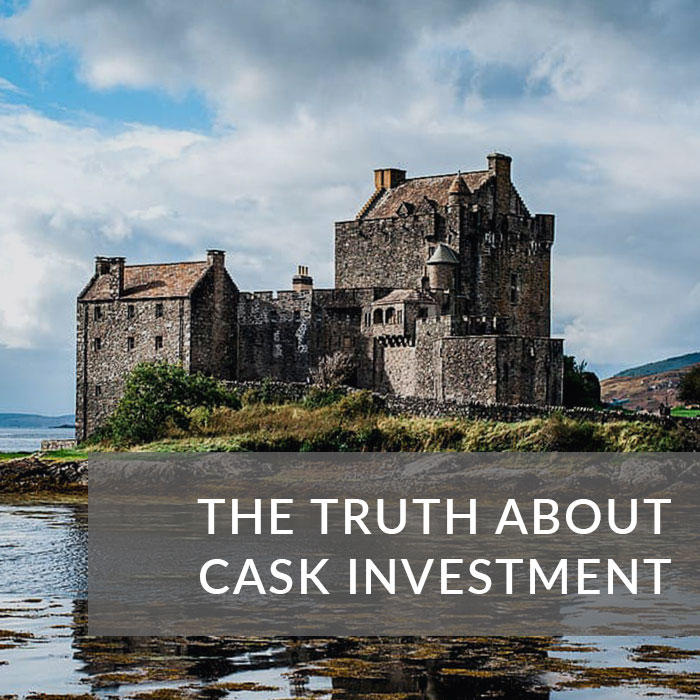8 THINGS TO KNOW BEFORE YOU BUY A WHISKY CASK
What are the 8 things you need to know before you buy a cask?
Video Guide 10/10 – Coming back soon
Our final Video Guide is down for a refresh to clarify a few important things about delivery orders. In the meantime the content below gives an up to date account of what you need to know before you buy a cask.
8 things to know before you buy a cask?
- The Bulk litres
- The ABV
- The OLA or RLA
- What type of cask is it?
- What size cask is it?
- Are there any restrictive covenants from the distillery?
- Where is your cask?
- Will you be taking ownership at the warehouse?
We’ll go through each of these points below and explain why you need to know them.
The first 3 points cover what’s inside your cask and will be used to determine the value of your cask.
1. What Are Bulk Litres?
The bulk litres of your cask shows the volume of all the liquid in your cask, for a young cask it will be similar to the total potential volume of the cask, but for older casks the bulk litres will drop as natural evaporation occurs through the porous oak of the cask.
2. What is ABV or alcohol by volume?
The ABV of your cask shows what percentage of the liquid in your cask is alcohol. The minimum ABV for a spirit to be called whisky is 40%, but cask strength usually varies between 40% to more than 70%. ABV also tends to drop with time, this is because alcohol evaporates more easily than water.
3. What is the OLA, or RLA
OLA stands for original litres of alcohol, which is the litres of alcohol when the cask was first filled, and RLA stands for regauged litres of alcohol, which is the litres of alcohol calculated from a regauge.
Both are calculated the same way: the Bulk litres and the ABV, for example if your cask was originally filled with 500litres of alcohol at 50%, your OLA is 250 litres (50% of 500). If your take a regauge which shows you have 495litres at 49.5% your RLA is 245.025 litres (49.5% of 495). Regauges are covered fully in video guide 4.
The first 3 points are important to determine the health of your cask, which in turn determines the value of your cask. The next 3 points concern the cask itself and are important because they will have a large effect on the flavour of the whisky and the potential lifetime of the cask.
Watch Our Cask Investment Video Guides
Send me my free cask buying guide
4. What type of cask is it?
By this we mean two things, what was the cask used for previously and is it a fresh-fill or a refill cask?
As experts agree that the cask imparts 60 – 80% of the flavour in a whisky it is important to know what kind of cask your whisky is maturing in. All whisky made in Scotland must be aged in oak casks.
The most common types of cask used are ex-bourbon and ex-sherry casks. These can be what’s known as fresh-fill i.e. this is their first use for whisky, or refill i.e. they have been used previously to mature whisky.
Bourbon and sherry add distinctive flavours to the whisky. They also have different costs associated with them. In addition, a fresh fill cask will add a much more dominant note to the whisky, whereas the effects of a refill cask will be more subtle, making them more suited to long term maturing.
With such a strong effect on the taste of your whisky, you can see why it is important to know what your whisky is maturing in, as it can affect the eventual value of your whisky, and the flavour if you are buying it to enjoy yourself.
5. What size is your cask?
Is it a barrel, a hogshead, a butt or something else? This is important as larger casks are more suited to longer term maturation, will potentially yield a different amount of whisky and have different ongoing costs associated with them for storage.
6. Are there any restrictive covenants on your cask?
Has the distillery put any restrictive covenants on your cask that might limit how you are able to use or bottle that cask in the future? Some distillers don’t allow you to use the name of the distillery on bottles filled from that cask, which will have a large impact on the value of that cask now and in the future.
The final two points are important for due diligence, and for when you come to sell, or bottle your cask. They are also important if you want to visit your cask, draw bottles and take samples:
7. Where is your cask lying?
You need to ensure you know which bonded warehouse in Scotland is responsible for storing your cask.
The bonded warehouse that Mark Littler work with allows our customers to visit their cask by appointment, they receive a picture of their cask, can draw bottles and take samples. But this is not always the case. Once you know which bonded warehouse will store your cask, you need to ask whether you can visit your cask, whether you are able to drawn bottles and take samples, and if there are any limits to the number of samples you can draw.
8. Will you be taking ownership of your cask at the warehouse?
The final, and arguably most important part you need to find out before you buy a cask is whether you are actually buying the cask. Some cask companies are issuing a certificate or similar, which does not transfer ownership at the warehouse level.
If you are not receiving a delivery order then you need to check with the warehouse where the cask will be stored that they accept the alternative that is being offered to you. If the warehouse don’t accept the alternative or inform you that they are not taking private accounts then that means that you are only receiving an internal transfer via the company you are purchasing through. That means you don’t have full autonomy over your asset. In addition it means the company you are buying from has not been clear about the purchase and ownership.
Those are the 8 key things you need to find out before you buy a cask. If you’d like to find out more about buying a cask with Mark Litter you can sign up for our cask buying guide, a free magazine that runs through everything you need to know about buying whisky casks.
Advice You Can Trust
Since 2016 our aim has been simple – to provide a trustworthy source of information to help people make sound decisions when they are selling their items. To date we have sold millions of pounds worth of antiques and whisky (both casks and bottles) for our clients.
We’re now applying this same logic to help people invest in casks of whisky. Rather than providing sales pitches disguised as educational material, it’s our mission to become the ultimate source of open and honest cask investment guidance.
The information you will find in OUR GUIDE, CASK VIDEOS, BLOG and CALCULATOR is all designed to help you make a balanced decision. We would rather you knew all the facts and didn’t buy a cask than buy one based on ‘fake news’.
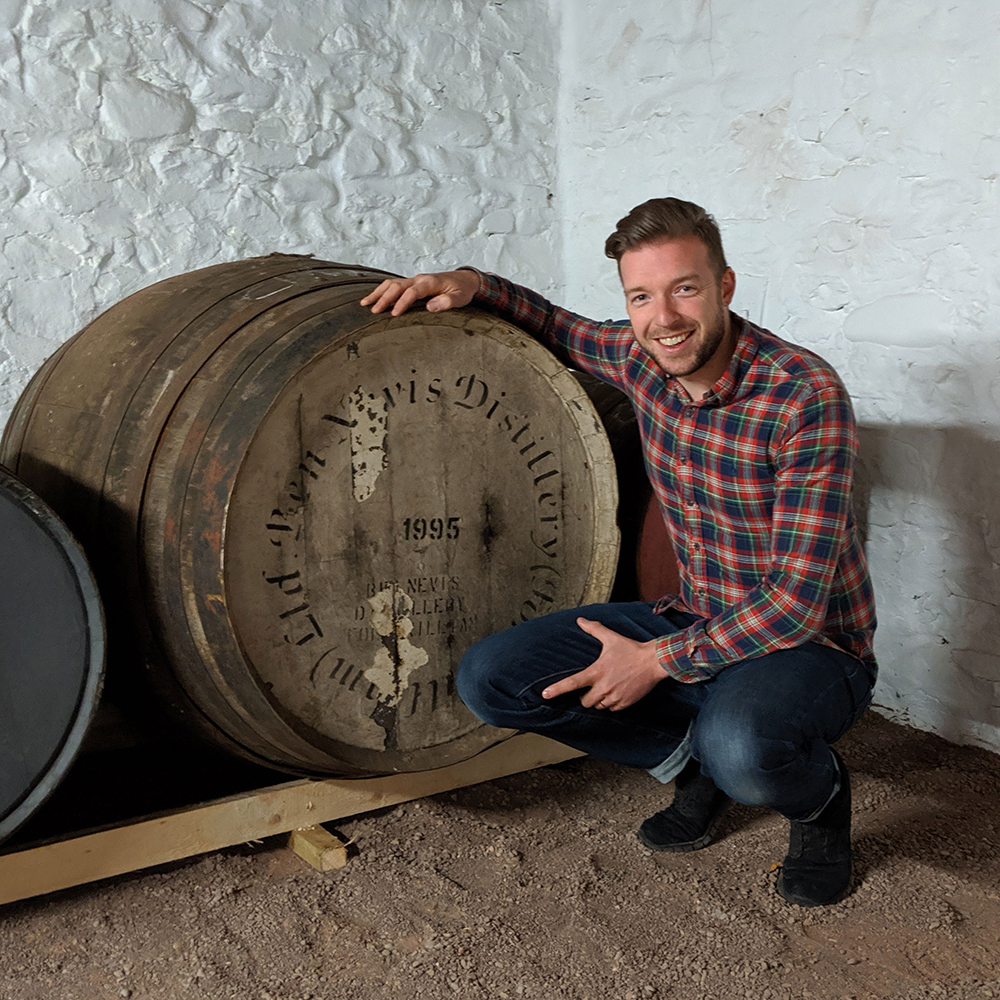
If you are looking to buy a cask of whisky there are 8 things you need to ensure you know before you buy your cask
What are the 8 things you need to know before you buy a cask?
Video Guide 10/10 – Coming back soon
Our final Video Guide is down for a refresh to clarify a few important things about delivery orders. In the meantime the content below gives an up to date account of what you need to know before you buy a cask.
8 things to know before you buy a cask?
- The Bulk litres
- The ABV
- The OLA or RLA
- What type of cask is it?
- What size cask is it?
- Are there any restrictive covenants from the distillery?
- Where is your cask?
- Will you be taking ownership at the warehouse?
We’ll go through each of these points below and explain why you need to know them.
The first 3 points cover what’s inside your cask and will be used to determine the value of your cask.
1. What Are Bulk Litres?
The bulk litres of your cask shows the volume of all the liquid in your cask, for a young cask it will be similar to the total potential volume of the cask, but for older casks the bulk litres will drop as natural evaporation occurs through the porous oak of the cask.
2. What is ABV or alcohol by volume?
The ABV of your cask shows what percentage of the liquid in your cask is alcohol. The minimum ABV for a spirit to be called whisky is 40%, but cask strength usually varies between 40% to more than 70%. ABV also tends to drop with time, this is because alcohol evaporates more easily than water.
3. What is the OLA, or RLA
OLA stands for original litres of alcohol, which is the litres of alcohol when the cask was first filled, and RLA stands for regauged litres of alcohol, which is the litres of alcohol calculated from a regauge.
Both are calculated the same way: the Bulk litres and the ABV, for example if your cask was originally filled with 500litres of alcohol at 50%, your OLA is 250 litres (50% of 500). If your take a regauge which shows you have 495litres at 49.5% your RLA is 245.025 litres (49.5% of 495). Regauges are covered fully in video guide 4.
The first 3 points are important to determine the health of your cask, which in turn determines the value of your cask. The next 3 points concern the cask itself and are important because they will have a large effect on the flavour of the whisky and the potential lifetime of the cask.
Send me my free cask buying guide
4. What type of cask is it?
By this we mean two things, what was the cask used for previously and is it a fresh-fill or a refill cask?
As experts agree that the cask imparts 60 – 80% of the flavour in a whisky it is important to know what kind of cask your whisky is maturing in. All whisky made in Scotland must be aged in oak casks.
The most common types of cask used are ex-bourbon and ex-sherry casks. These can be what’s known as fresh-fill i.e. this is their first use for whisky, or refill i.e. they have been used previously to mature whisky.
Bourbon and sherry add distinctive flavours to the whisky. They also have different costs associated with them. In addition, a fresh fill cask will add a much more dominant note to the whisky, whereas the effects of a refill cask will be more subtle, making them more suited to long term maturing.
With such a strong effect on the taste of your whisky, you can see why it is important to know what your whisky is maturing in, as it can affect the eventual value of your whisky, and the flavour if you are buying it to enjoy yourself.
5. What size is your cask?
Is it a barrel, a hogshead, a butt or something else? This is important as larger casks are more suited to longer term maturation, will potentially yield a different amount of whisky and have different ongoing costs associated with them for storage.
6. Are there any restrictive covenants on your cask?
Has the distillery put any restrictive covenants on your cask that might limit how you are able to use or bottle that cask in the future? Some distillers don’t allow you to use the name of the distillery on bottles filled from that cask, which will have a large impact on the value of that cask now and in the future.
The final two points are important for due diligence, and for when you come to sell, or bottle your cask. They are also important if you want to visit your cask, draw bottles and take samples:
7. Where is your cask lying?
You need to ensure you know which bonded warehouse in Scotland is responsible for storing your cask.
The bonded warehouse that Mark Littler work with allows our customers to visit their cask by appointment, they receive a picture of their cask, can draw bottles and take samples. But this is not always the case. Once you know which bonded warehouse will store your cask, you need to ask whether you can visit your cask, whether you are able to drawn bottles and take samples, and if there are any limits to the number of samples you can draw.
8. Will you be taking ownership of your cask at the warehouse?
The final, and arguably most important part you need to find out before you buy a cask is whether you are actually buying the cask. Some cask companies are issuing a certificate or similar, which does not transfer ownership at the warehouse level.
If you are not receiving a delivery order then you need to check with the warehouse where the cask will be stored that they accept the alternative that is being offered to you. If the warehouse don’t accept the alternative or inform you that they are not taking private accounts then that means that you are only receiving an internal transfer via the company you are purchasing through. That means you don’t have full autonomy over your asset. In addition it means the company you are buying from has not been clear about the purchase and ownership.
Those are the 8 key things you need to find out before you buy a cask. If you’d like to find out more about buying a cask with Mark Litter you can sign up for our cask buying guide, a free magazine that runs through everything you need to know about buying whisky casks.
Advice You Can Trust
Since 2016 our aim has been simple – to provide a trustworthy source of information to help people make sound decisions when they are selling their items. To date we have sold millions of pounds worth of antiques and whisky (both casks and bottles) for our clients.
We’re now applying this same logic to help people invest in casks of whisky. Rather than providing sales pitches disguised as educational material, it’s our mission to become the ultimate source of open and honest cask investment guidance.
The information you will find in OUR GUIDE, CASK VIDEOS, BLOG and CALCULATOR is all designed to help you make a balanced decision. We would rather you knew all the facts and didn’t buy a cask than buy one based on ‘fake news’.




